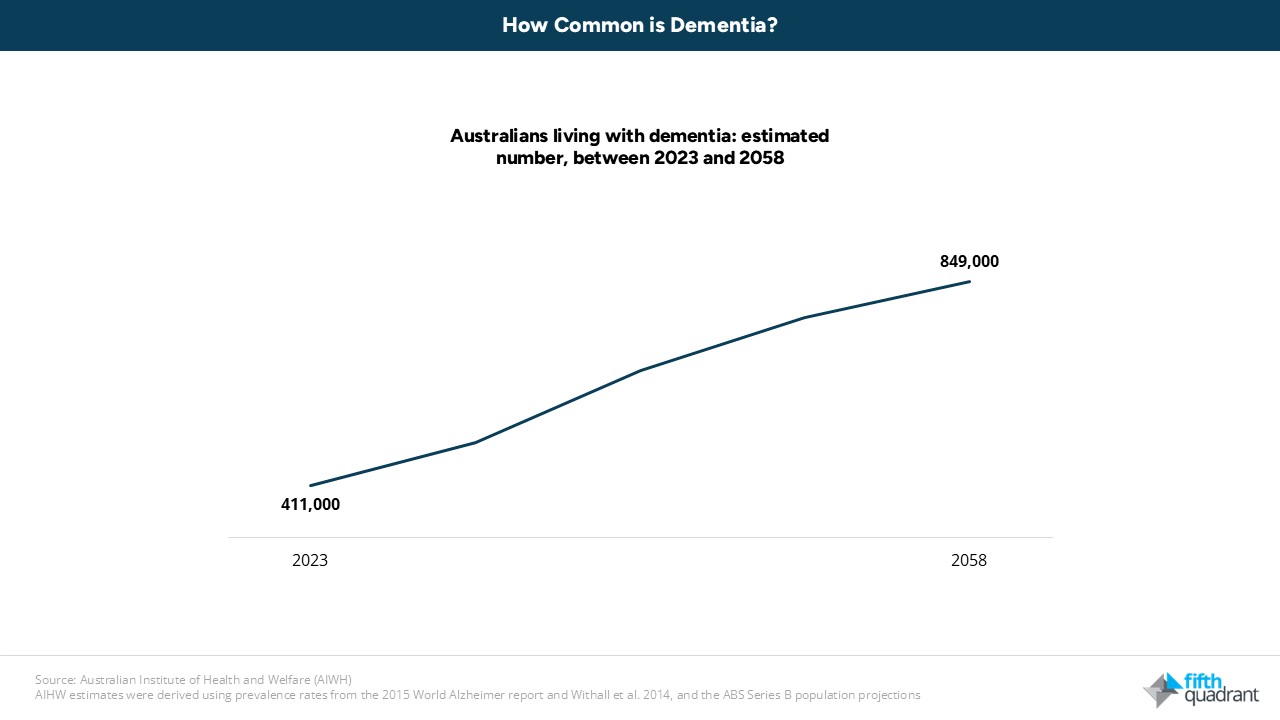Author: Nick Rassool | Posted On: 05 May 2025
In Australia, brain health is under increasing pressure. Dementia, stroke, and late-life depression are rising concerns, each deeply impactful, yet more interconnected than many realise.
According to the Australian Institute of Health and Welfare (AIHW), over 411,000 Australians were living with dementia in 2023, a figure expected to more than double by 2058 as our population ages.

Recent research highlights a powerful insight: these three conditions share a range of modifiable risk factors. While they might seem unrelated at first glance, studies show that addressing just a few lifestyle factors could significantly reduce your risk of developing these brain-related diseases.
What does the research say?
A recent comprehensive study, published in the Journal of Neurology, Neurosurgery & Psychiatry, identified 17 overlapping risk factors that influence dementia, stroke, and depression. Key protective measures included moderate physical activity, engaging in cognitive tasks like reading or puzzles, maintaining a diet rich in vegetables, fruits, fish, and nuts, and nurturing strong social connections.
Conversely, factors such as high blood pressure, obesity, high blood sugar, poor sleep quality, social isolation, chronic stress, and unhealthy dietary habits were found to significantly increase risk.
Supporting these findings, the 2024 Lancet Commission on Dementia Prevention, Intervention, and Care, a major global review of dementia research, estimates that 45% of dementia cases could be delayed or even prevented by improving modifiable lifestyle factors. With a predicted doubling of dementia prevalence by 2058, this trend presents not only a public health challenge but also a measurable shift in population needs and service demand.
The shared risks: why they matter
The significance of shared risks lies in the opportunity to simplify prevention strategies. Rather than managing separate health plans for each disease, individuals can address multiple risks simultaneously. For example, lowering blood pressure through dietary changes and regular physical activity can substantially reduce the likelihood of stroke, dementia, and even depression.
Australian health experts at organisations like Beyond Blue and the Heart Foundation consistently emphasise how interconnected our physical and mental health is, highlighting the profound benefits of holistic health strategies.
Wellness: an emerging priority
Australians are increasingly prioritising wellness, prevention, and longevity in how they live, shop, and plan for the future.
This trend includes regular physical activity, mindful eating, and stress management practices, all of which align with strategies for enhancing brain health and preventing cognitive decline.
These lifestyle shifts also offer important signals for businesses in health, wellness, insurance, or aged care, as consumer expectations increasingly align with prevention and holistic wellbeing.
5 Practical steps to boost your brain health
Below are five simple, evidence-backed steps you can adopt:
- Get moving: Aim for regular, moderate activity such as daily walks, swimming, or gardening.
- Stay mentally active: Engage in puzzles, reading, or even learning a new skill or instrument.
- Connect socially: Join clubs, volunteer, or simply maintain regular contact with family and friends.
- Improve your diet: Incorporate more fruits, vegetables, fish, and nuts, and limit red meat, sugar, and sodium.
- Monitor your health: Regularly check blood pressure, cholesterol, and blood sugar levels, and seek medical advice when needed.

Experts recommend adopting these lifestyle improvements as early as possible, ideally during mid-life, to maximise long-term brain health benefits. However, it’s important to note that making these changes at any age can still significantly reduce risks and enhance your quality of life.
Final thoughts
As lifestyle and wellness increasingly shape consumer decisions, these insights offer valuable context for anyone exploring future trends in health, ageing, and wellbeing.
Protecting your brain health doesn’t have to be complicated. Whether you’re a health-conscious consumer, a carer, or someone guiding decisions in your workplace or community, these small, evidence-based changes can make a meaningful difference. By focusing on a few key areas, you can greatly reduce your risk of dementia, stroke, and depression, paving the way for a healthier, more fulfilling life.
At Fifth Quadrant, we believe in creating tomorrow, today. Stay informed with the latest healthcare market research from Fifth Quadrant. If you’d like to learn more about this research or explore how we can support your organisation, contact us today.
Posted in Healthcare, Consumer & Retail, Social & Government, TL

